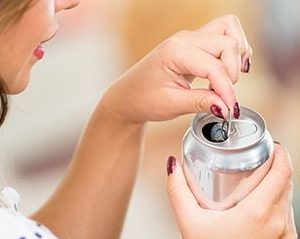- Could Your Grocery Store Meat Be Causing Recurring UTIs?
- Are You Making This Expensive Thermostat Error This Winter?
- Recognizing the Signs of Hypothyroidism
- 10 Strategies to Overcome Insomnia
- Could Artificial Sweeteners Be Aging the Brain Faster?
- Techniques for Soothing Your Nervous System
- Does the Water in Your House Smell Funny? Here’s Why
- Can a Daily Dose of Apple Cider Vinegar Actually Aid Weight Loss?
- 6 Health Beverages That Can Actually Spike Your Blood Sugar
- Treatment Options for Social Anxiety Disorder
You Probably Can’t ‘Exercise Away’ the Calories in Sodas: Study

Don’t expect to sweat away the heart risks posed by sugary sodas and drinks, a new study warns.
Canadian researchers found that even if the recommended 150 minutes of weekly physical activity protects against cardiovascular disease, it’s not enough to counter the adverse effects of sugar-sweetened beverages.
“Physical activity reduces the risk of cardiovascular disease associated with sugar-sweetened beverages by half, but it does not fully eliminate it,” said researcher Jean-Philippe Drouin-Chartier, an assistant professor with Université Laval’s Faculty of Pharmacy in Quebec, said in a university news release.
Researchers noted that sugar-sweetened drinks are the largest source of added sugars in the North American diet.
For the study, they analyzed data on about 100,000 adults who were followed for an average of three decades.
Those who consumed sugar-sweetened beverages more than twice a week had a higher risk of heart disease, regardless of their physical activity levels.
With daily consumption, the risk of heart disease is even higher, researchers noted.
Drouin-Chartier noted that the sugary drinks in the study included sodas, lemonade and fruit cocktails. The study didn’t specifically consider energy drinks, but those also tend to contain heavy doses of sugar.
Artificially sweetened drinks were not associated with higher risk of heart disease, the researchers found.
“Replacing sugar-sweetened beverages by diet drinks is good, because it reduces the amount of sugar. But the best drink option remains water,” Drouin-Chartier said.
The findings “provide further support for public health recommendations and policies to limit people’s intake of sugar-sweetened beverages, as well as to encourage people to meet and maintain adequate physical activity levels,” said lead study author Lorena Pacheco, a research scientist in nutrition at the Harvard T.H. Chan School of Public Health in Boston.
The new study was recently published in the American Journal of Clinical Nutrition.
More information
Cleveland Clinic has more about sugar and heart disease.
SOURCE: Université Laval, news release, Feb. 8, 2024
Source: HealthDay
Copyright © 2026 HealthDay. All rights reserved.










